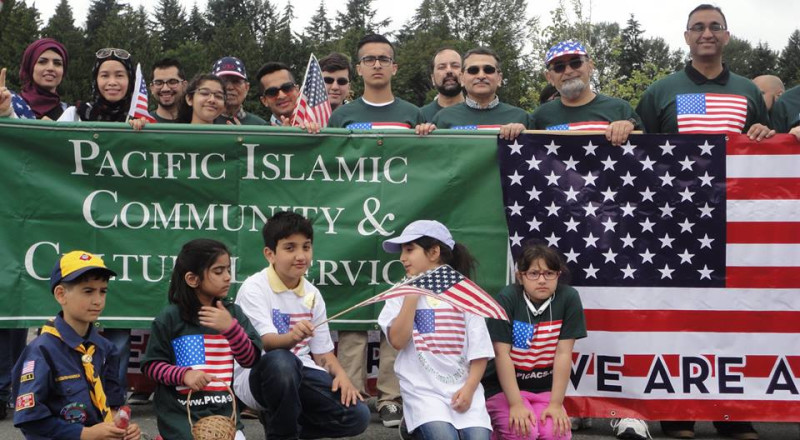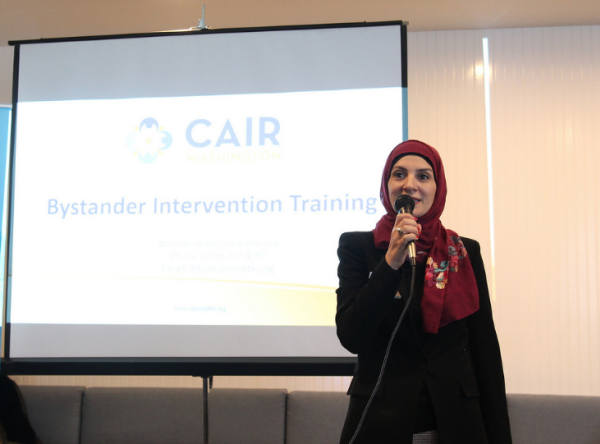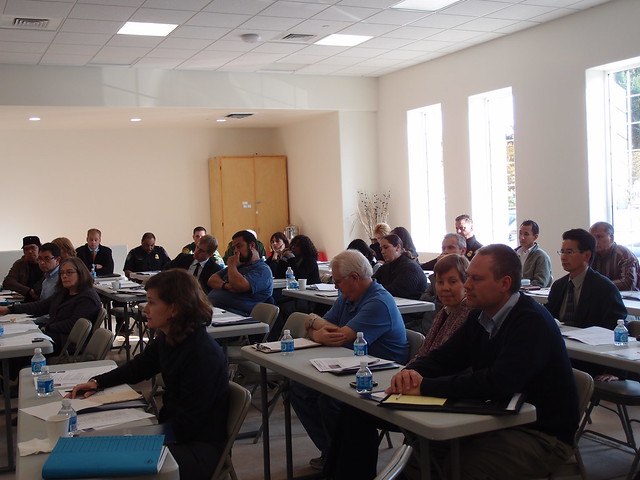 Federal agencies and community groups made the most of a sunny afternoon during an otherwise gloomy day to meet at the Muslim Association of Puget Sound (MAPS) center in Redmond on October 27, 2011.
Federal agencies and community groups made the most of a sunny afternoon during an otherwise gloomy day to meet at the Muslim Association of Puget Sound (MAPS) center in Redmond on October 27, 2011.
They were taking part in the Quarterly Community Engagement Seattle Area Roundtable organized by the Office of Civil Rights and Civil Liberties (CRCL), a division of the Department of Homeland Security (DHS). The roundtable, held periodically in various cities across the US, was established by the CRCL as a forum for groups involved with different minorities to meet and update each other on various pressing issues.
A key speaker at the roundtable in Redmond this time was Christoph Hauschild, director and head of the unit for integration policies in the federal ministry of the interior in Germany. Hauschild gave a short talk on the various policies the German government has been implementing to integrate minorities, in particular Muslims, into wider society. Pointing out that there were 4 million Muslims in Germany – compared to 5 million in the US – he talked about how the attacks on September 11, 2001 affected Germany by changing the relationship between mainstream society and Turkish immigrants. “It may not have been right, but people started looking much more at the religious identity (of immigrants),” said Hauschild. Part of the efforts that his office has been undertaking to improve integration includes the establishment of Islamic studies in schools and the development, in participation with stakeholders, of guidelines for mosque construction.
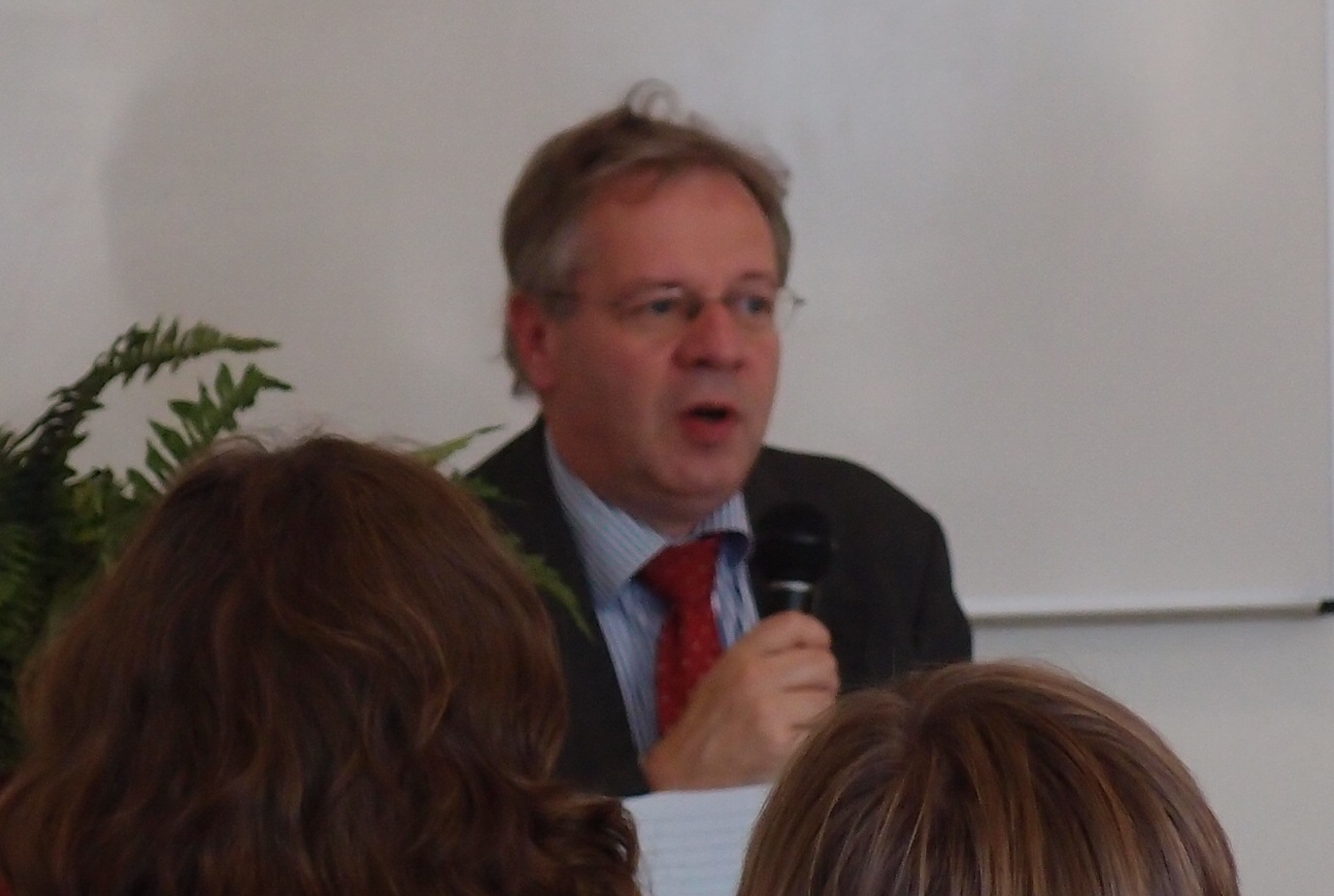 In the Q&A session with the participants, one participant brought attention to the comment of German Chancellor Angela Merkel that multiculturalism was dead. Pointing out that that there was more to her argument than just that single remark, he said that in the same speech, Merkel had also described diversity as a strength. Multiculturalism isn’t without its flaws though, according to Hauschild, sounding a note of caution. “People stress on the differences rather than commonalities and that isn’t the right concept for integration.”
In the Q&A session with the participants, one participant brought attention to the comment of German Chancellor Angela Merkel that multiculturalism was dead. Pointing out that that there was more to her argument than just that single remark, he said that in the same speech, Merkel had also described diversity as a strength. Multiculturalism isn’t without its flaws though, according to Hauschild, sounding a note of caution. “People stress on the differences rather than commonalities and that isn’t the right concept for integration.”
Another participant questioned the nature of German policies and asked whether the policy was one of assimilation where the government was trying to institute a common German identity for everyone. This was a misleading view of German policies for Hauschild. “We want to see that everyone has a basic understanding of German language and of our values, we don’t ask anybody to renounce their culture or religion,” he said. To support his point, he brought up the example of integrating religious leaders. “Imams are more or less a bridge between these communities and German society. Imams who were coming in from Turkey spoke only Turkish or Arabic and it is important to integrate them by helping them learn German.”
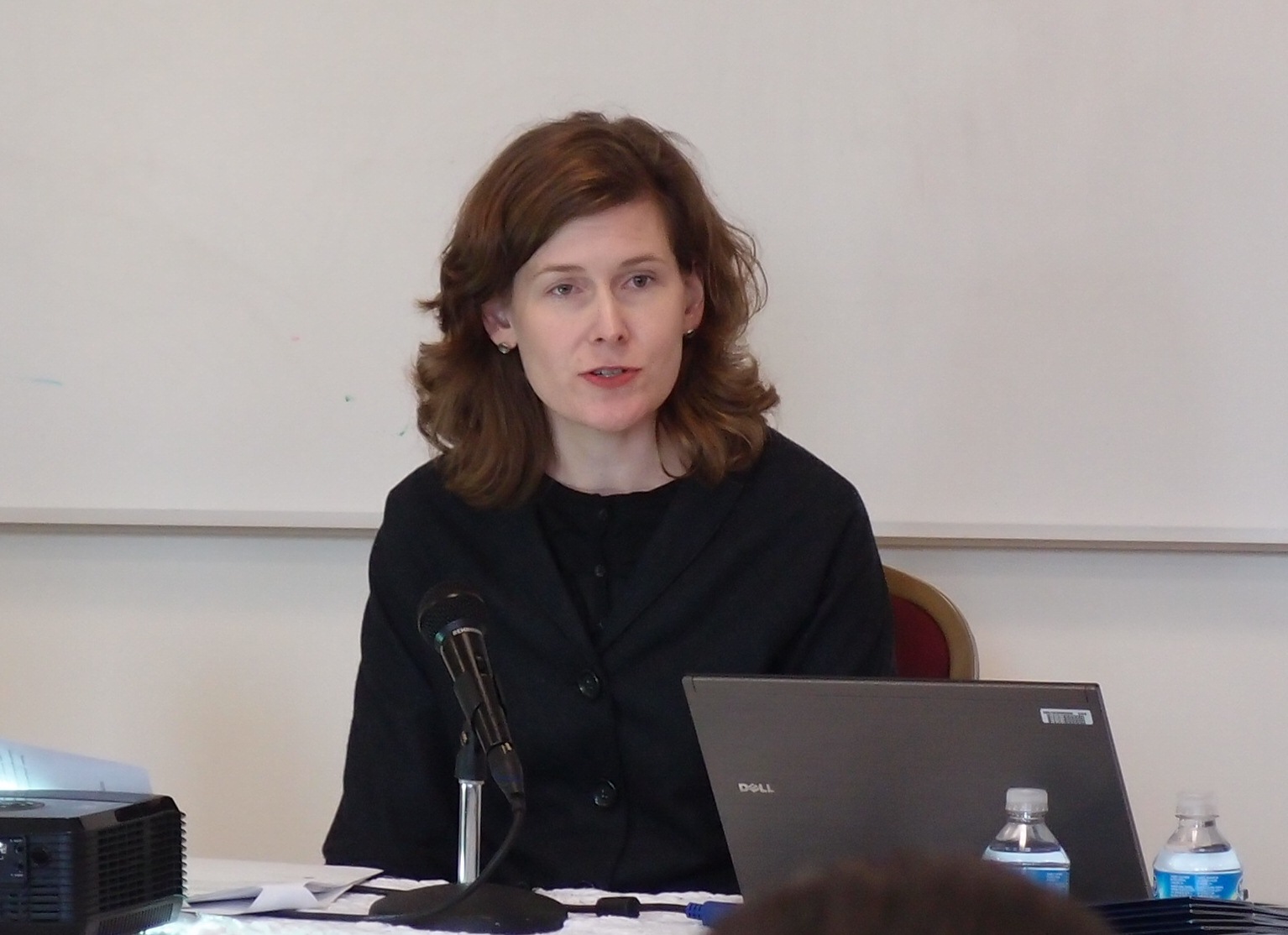 Following Hauschild, there was a presentation from Laura Patching, Acting chief of the Office of citizenship at US Citizenship and Immigration Services (USCIS), who talked about the various initiatives her office was taking to integrate immigrants. Patching described the function of her office as one of welcoming immigrants and promoting rights and responsibilities in accordance with American citizenship. “We do that through the development of educational materials, but our primary focus is on civic integration and using the naturalization process to achieve that.”
Following Hauschild, there was a presentation from Laura Patching, Acting chief of the Office of citizenship at US Citizenship and Immigration Services (USCIS), who talked about the various initiatives her office was taking to integrate immigrants. Patching described the function of her office as one of welcoming immigrants and promoting rights and responsibilities in accordance with American citizenship. “We do that through the development of educational materials, but our primary focus is on civic integration and using the naturalization process to achieve that.”
To that end, she talked about how her office provides immigrant-serving organizations with a free civics and citizenship toolkit that has all the educational materials a community group would need to train someone for the citizenship test. “Sometimes people would rather walk into your space (instead of USCIS), we want to equip you with the information that you need so that you can share that with them, and so not have people fall victim to unscrupulous practitioners,” she said. Patching also brought attention to the citizenship and integration grant program at her office which funds organizations involved in preparing permanent residents for citizenship. “Since 2009, we’ve given out 18.5 million dollars”, said Patching, “it’s a part of the message from Congress that immigrant integration is important to this country and it’s in the national good.”
The issues that Bukhari brought up with regard to the document was on how no organization was being given the authority of oversight in relation to training on extremism and how there is the need for accountability through third-party auditors. Kareem Shora, head of the community engagement section at CRCL, responded that the set of best practices in the document is now a part of the process by which any agency gets funding. “When a law enforcement agency applies for a DHS grant through FEMA, the best practices are now a part of the process. It is a work in progress and we’re working with FLETC (Federal Law Enforcement Training Center) to establish a form of curriculum review or accreditation for trainers (who will be a part of any training funded.)”, said Shora.
Another concern that CAIR-WA had was that a lot of well-known anti-Muslim trainers would still easily qualify under these guidelines and requested that the guidelines be made more specific. “Obviously we aren’t going to get it completely correct,” replied Shora, if all of these best practices are followed, you will see a positive change as far as this issue goes.” He also emphasized the need for community organizations to report on any possible anti-minority bias to the DHS as soon as they learn about it.
With the issues on the agenda addressed, various federal agencies then updated the audience on the outreach programs they were undertaking. Customs and Border Protection mentioned their citizen’s academy initiative, which would be an opportunity for the general public to learn how officers in border patrol are trained. The Department of Justice, in their update, talked about the program combating bullying they plan to roll out in schools and also mentioned a future program they’re working together with CAIR on, to connect the various mosques in the Puget Sound area with law enforcement agencies.
The meeting then ended with the participants being shown around the picturesque MAPS mosque. Talking about the usefulness of these roundtables and engagement in general between federal agencies and community groups, Bukhari was optimistic. “People have been asking whether these meetings have simply been for outreach (by federal agencies), or whether they can be taken further to actually resolve issues,” said Bukhari, “(That these meetings have taken place) doesn’t mean that many things have been resolved but at least it shows that they’re listening.”












